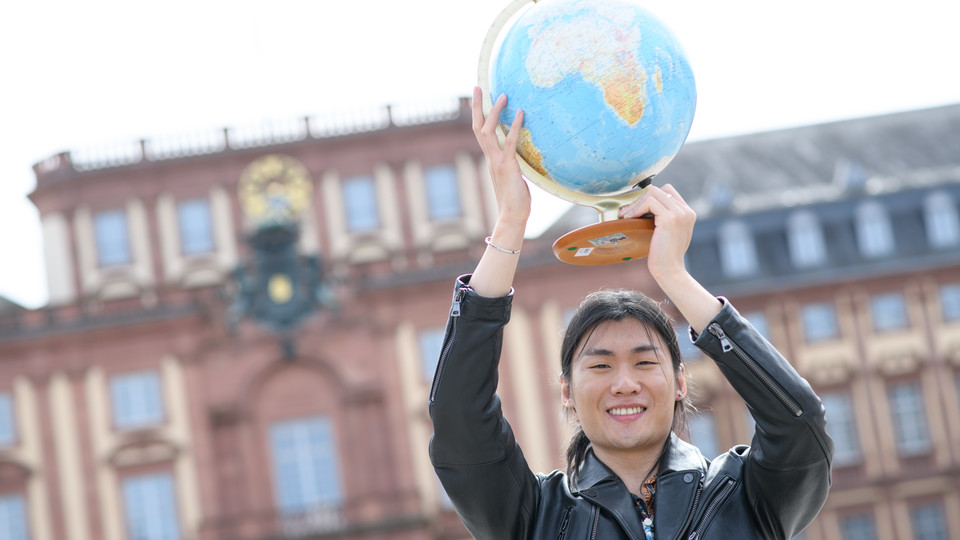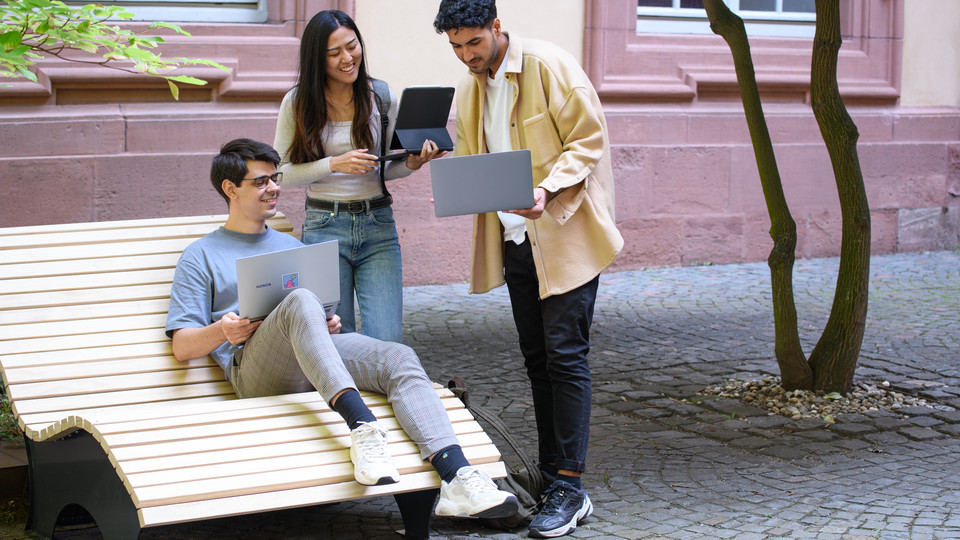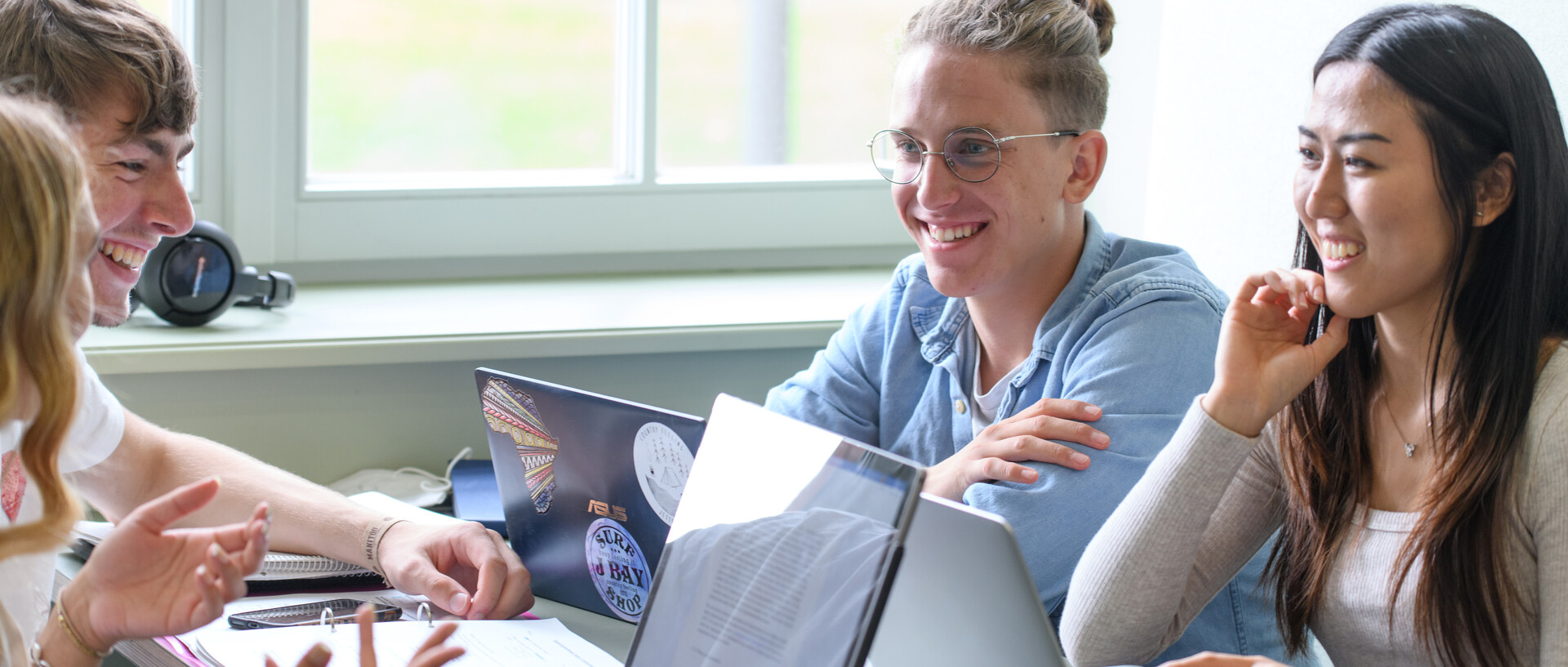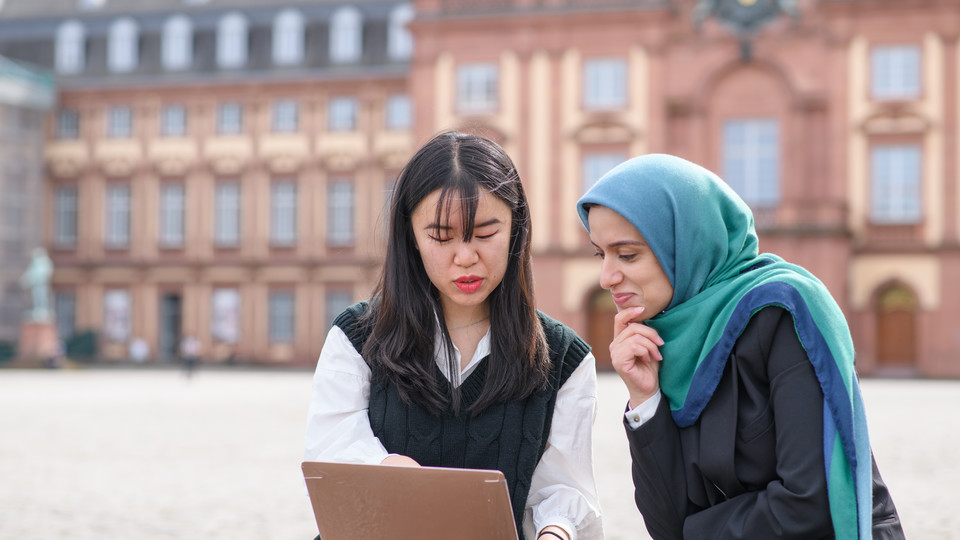In contrast to many forms of online learning which are based on the transfer of information through video lectures and shared files, intercultural dialogue is at the center of learning in telecollaboration, which is based on student-centered, collaborative approaches to learning where knowledge and understanding are constructed through interaction and negotiation.
„Virtual Mobility“ and „Virtual Exchange“ refer to an area of teaching which is characterized on the one hand by international networking and virtual teaching and on the other hand by a digital course catalogue. The School of Humanities cooperates closely with partners from all over the world to enable students to experience digital, intercultural exchange. In addition, the School of Humanities offers a range of digital courses that enable students to gain such an experience even without a cooperation.
Advantages of “Virtual Exchange”

Students are enabled to participate in an international exchange, which enables them to learn new perspectives on their subject and to strengthen their intercultural competences.

Collaboration in virtual space is supported and enriched by the use of selected (digital teaching) tools.

For teachers, the COIL format offers the advantage of collaborative teaching planning, in which they expand and deepen their international network through their common expertise.

By incorporating different expertise and teaching planning, in which the sessions are alternately taken over by lecturers, complex questions can be examined from various angles.

COIL stands for Collaborative Online International Learning. Lecturers from different countries work closely together to develop learning units for students from the respective universities. Students have the opportunity to gain authentic, intercultural experience without having to change location. In this way, students from all over the world connect and develop sustainable and long-term relationships as well as friendships. The following goals will be achieved through this intercultural concept:
Offers
The Coordination Office for Virtual Mobility and Virtual Exchange at the Dean’s Office of School of Humanities acts as a link between faculty members and science management contacts from all over the world. Contacts to the partner universities of the faculty and, in addition, to educational institutions in different countries are established, collected and communicated to those interested in the University of Mannheim. The Dean’s Office also supports and advises on the preparation, planning and coordination of COIL formats.
Previous projects
Seminar: Our World in Crisis: Intercultural Challenges and Responses
This COIL project was offered at the School of Humanities in FSS 2022. Students from Salem State University in the USA and students from the University of Mannheim had the opportunity to participate together in this international and virtual teaching and learning project (COIL). In terms of content, national and global topics related to the concept of crisis were examined from different disciplines. This project consisted of a variety of different topics presented by different lecturers. Students gained an understanding of the complexity of the term and the multitude of opinions, ideas and theories on the subject. Designed as an interactive, international and intercultural classroom, participants were given the opportunity to share their experiences and perceptions regarding the crisis in our global culture today. The lecturers introduced different terms and definitions of crisis and gave an overview of current discourses, which they embedded in the main theories of cultural studies:
Dozierende | Titel | Beschreibung Agnieszka Komorowska Performing Failure and Bringing Narratives of Crisis to the Stage Relationship between failure and crisis; Performing failure according to Sara Jane Bailes Abir Al-Laham How We Look: The Crisis in Representing the Other Edward Said and Orientalism; Representation and Crisis: Ramifications of Representing the Other Elizabeth Duclos-Orsello Interdisciplinarity in Practice: Integration, Synthesis & Collaboration Instrumental interdisciplinarity vs. critical interdisciplinarity; Interdisciplinary, multidisciplinary and transdisciplinary studies Elizabeth Duclos-Orsello Borders, Walls & Crisis: US and European Contexts Introduction and Chapter 1 of Gloria Anzaldua, Borderlands/ La Frontera: The New Mestiza Hiram Kümper Climate History: How Do We Know a Thing About Pre-Modern Weather and Its Extremes? Historical perspectives on weather and climate Ulfried Reichardt Financial Crisis in American Film and Literature Margin Call – scene; What is money – virtuality and authority Aline Schmidt Linguistic and Discursive Constructions of Crisis Crisis and Political Leadership; Crisis and Populism Michele Tertilt The Covid19 Crisis and Gender Equality in the Labor Market Shecession and Mancession; Quantifying Impact of Regular vs. Pandemic Recessions Oliver Spalt Crises in Economics and Society A crisis of rationality, a crisis of trust, a crisis of climate According to the participants:
“I really liked the lively exchange between the different cultures and the different topics that were addressed.”
“The combination of a discussion based seminar with people from multiple cultural backgrounds added greatly to the learning experience without taking anything.”
Upcoming offers
 Credit: Anna Logue
Credit: Anna LogueHere you will find offers and invitations from different countries and disciplines for future joint teaching projects. Teachers of the School of Humanities who would like to initiate a COIL project are invited to send their offers to the Dean's Office, where the requests will be forwarded to the contacts in the international universities.

